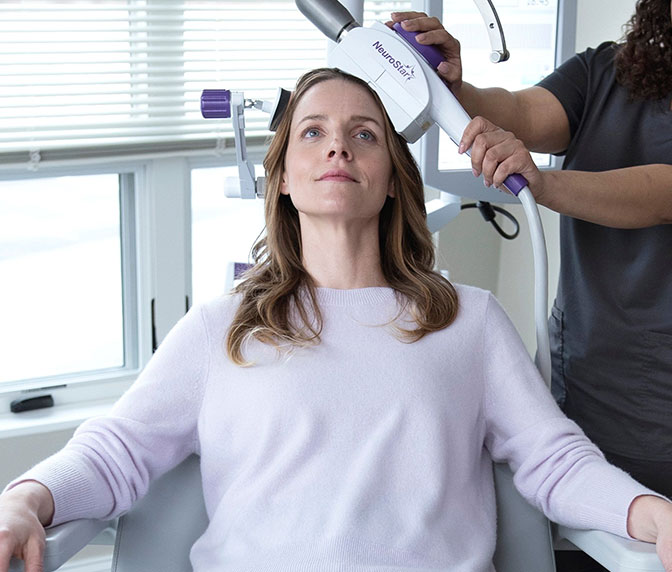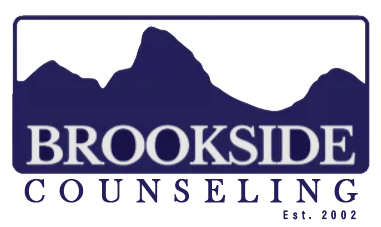NeuroStar TMS

What Is NeuroStar TMS Therapy?
NeuroStar Transcranial Magnetic Stimulation (TMS) therapy is a medical treatment for patients with extreme depression, whose conditions have not improved after trying prescribed drugs and other methods to treat depression. TMS is a painless, non-invasive intervention that involves a pulsed magnetic field directed at specific neural targets in the brain to lessen the presentation of depressive symptoms. A single TMS therapy session lasts anywhere from 3 to 19 minutes. Most all patients report no side effects.
NeuroStar TMS Therapy is said to be one of the most effective treatments for healing depression or major depressive disorders (MDD) or treatment resistant depression.
You might wonder what is so unique about this therapy and how it can work wonders on the brain of a person in curing severe mental conditions such as MDD. Below are the answers to the most fundamental questions about NeuroStar TMS therapy, and how it's safe and effective.
How Does TMS Therapy Work?
When carrying out a TMS session, a partient sits and relaxes on a chair while a treatment coil is placed on their scalp. Short, soft magnetic pulses are then generated by this coil which go into the skull stimulating parts of the brain responsible for mood regulation. You will hear clicking sounds during the therapy. These sessions are usually painless, with parients usually only feel a slight tapping on their head when going through each session.

01
What Happens During The Therapy?
The magnetic pulses trigger minute brain electrical signals that stimulate specific mood centers to become active. The precise underlying actions of TMS as an antidepressant work magic on a person’s brain, though they appear to alter some specific brain networks as well as the neurochemical processes.
02
How Long Does The Sessions Last?
TMS is typically a course of daily treatment sessions spanning multiple weeks per session lasting approximately three to twenty minutes each. The number of sessions for an individual may vary depending on his/her degree of mental problem, as well as their reaction toward treatment, but a typical client usually completes 36 individual sessions


Are There Any Side Effects Of This Treatment?
Is NeuroStar TMS Therapy Effective?

03
What Happens After TMS Therapy?
Some people begin to observe improvements in their depressive symptoms and a reduction in the frequency of depressive episodes after just a couple of weeks of receiving TMS therapy. The rates of response are variable, and it may be that not everybody will respond in the same way to the therapy. Some individuals may require maintenance sessions to sustain the therapeutic effects over the long term.
04
Is NeuroStar TMS FDA Cleared?
Yes, NeuroStar TMS has been Cleared by the FDA(Food Drug Administration). This treatment was invented to help people fight depression, later this therapy also helped people with anxious depression. NeuroStar is the most trusted and reliable choice for TMS when it comes to treating MDD, and other severe mental problems which are yet to be discovered.

